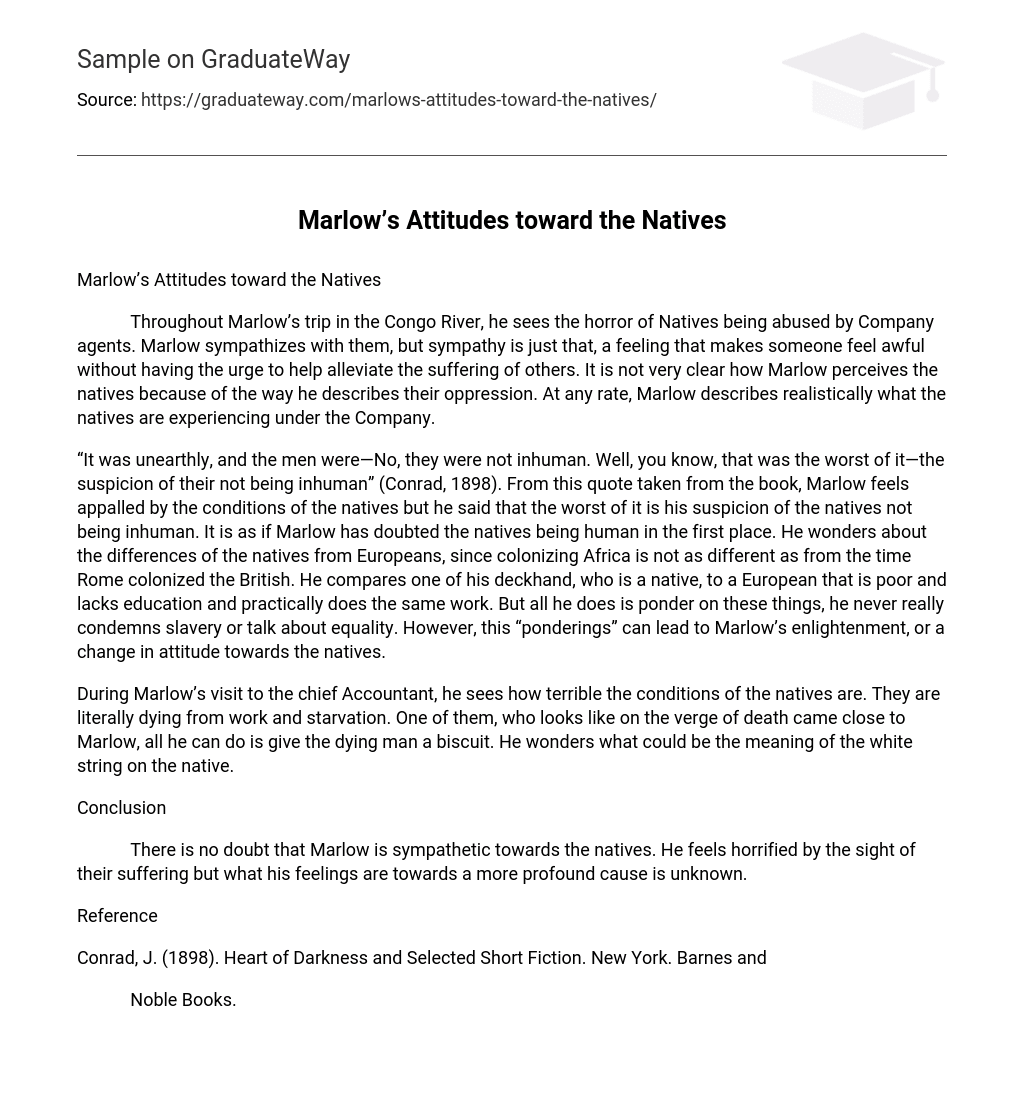Throughout Marlow’s trip in the Congo River, he sees the horror of Natives being abused by Company agents. Marlow sympathizes with them, but sympathy is just that, a feeling that makes someone feel awful without having the urge to help alleviate the suffering of others. It is not very clear how Marlow perceives the natives because of the way he describes their oppression. At any rate, Marlow describes realistically what the natives are experiencing under the Company.
“It was unearthly, and the men were—No, they were not inhuman. Well, you know, that was the worst of it—the suspicion of their not being inhuman” (Conrad, 1898). From this quote taken from the book, Marlow feels appalled by the conditions of the natives but he said that the worst of it is his suspicion of the natives not being inhuman. It is as if Marlow has doubted the natives being human in the first place. He wonders about the differences of the natives from Europeans, since colonizing Africa is not as different as from the time Rome colonized the British. He compares one of his deckhand, who is a native, to a European that is poor and lacks education and practically does the same work. But all he does is ponder on these things, he never really condemns slavery or talk about equality. However, this “ponderings” can lead to Marlow’s enlightenment, or a change in attitude towards the natives.
During Marlow’s visit to the chief Accountant, he sees how terrible the conditions of the natives are. They are literally dying from work and starvation. One of them, who looks like on the verge of death came close to Marlow, all he can do is give the dying man a biscuit. He wonders what could be the meaning of the white string on the native.
Conclusion
There is no doubt that Marlow is sympathetic towards the natives. He feels horrified by the sight of their suffering but what his feelings are towards a more profound cause is unknown.
Reference
Conrad, J. (1898). Heart of Darkness and Selected Short Fiction. New York. Barnes and
Noble Books.





